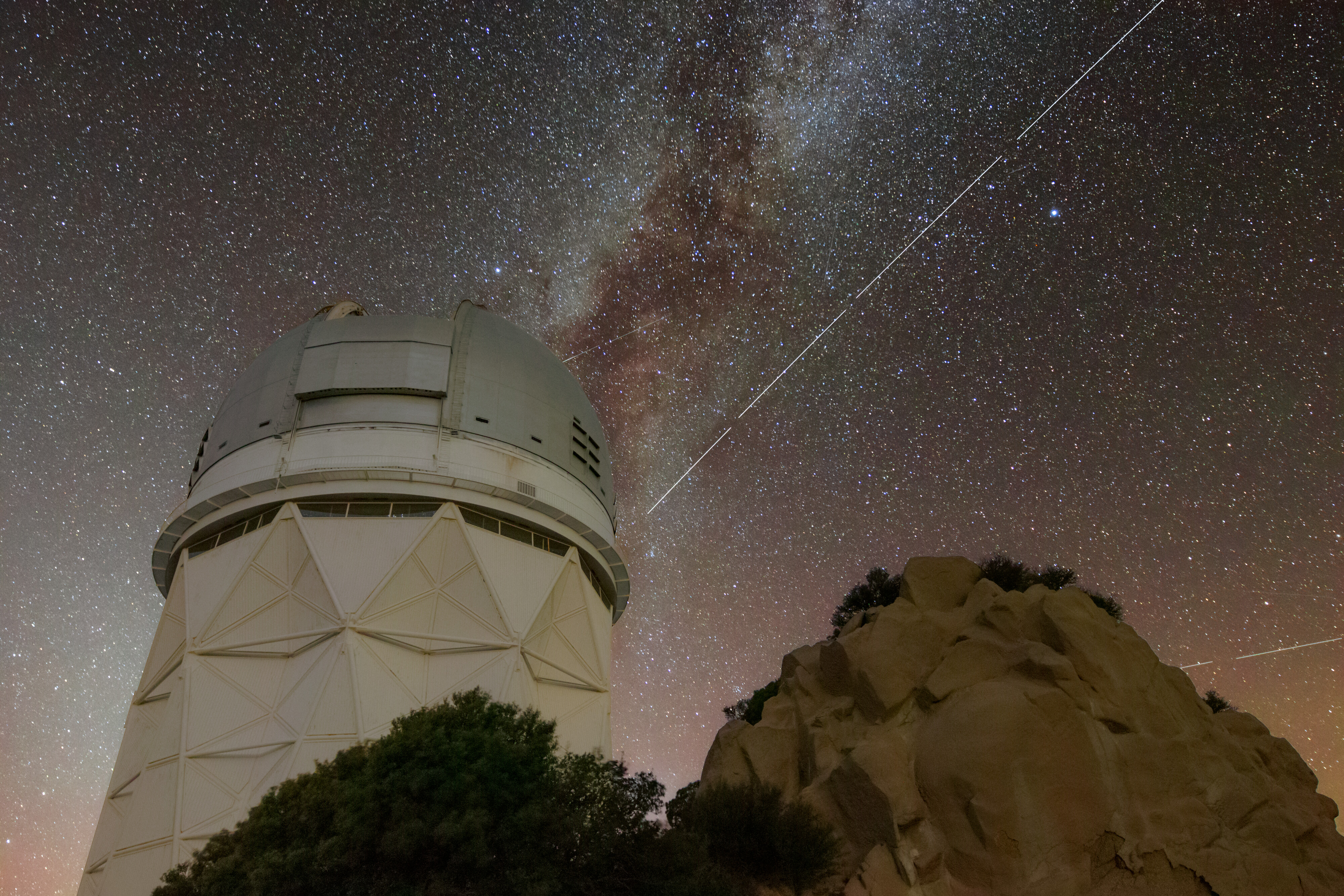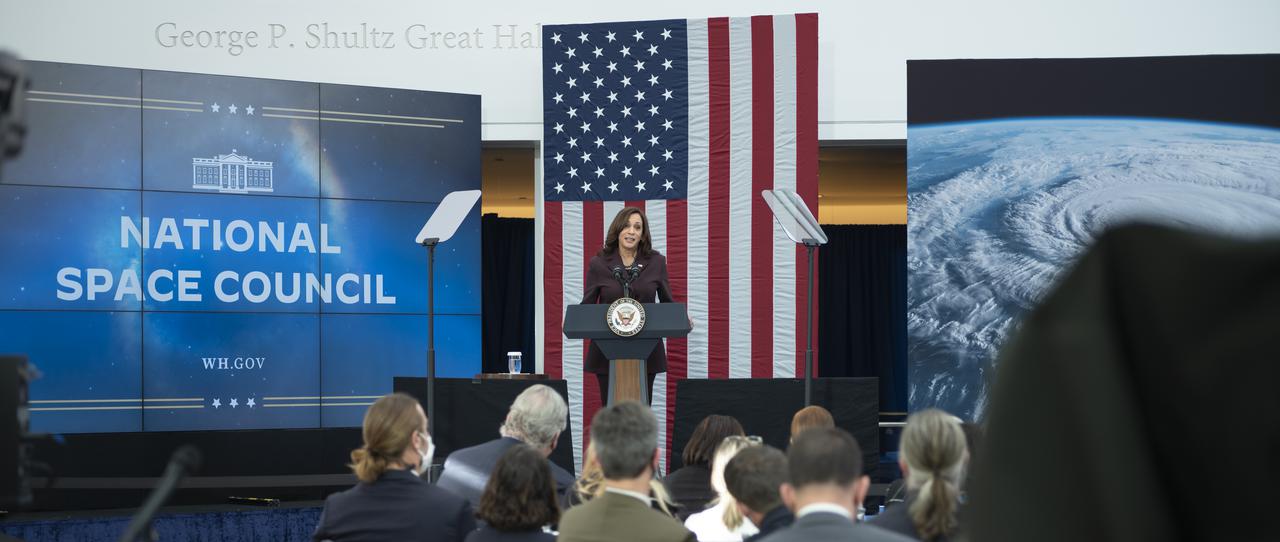Legislation on Space Debris and Commercialization
Yaswant Devarakonda American Astronomical Society (AAS)
The last few months have seen significant legislative action on space activities. In this blog post we discuss what these bills are, how they might affect our community, and what steps the AAS has been taking to advocate our needs to policymakers.
The Commercial Space Act
Since the last significant piece of legislation on commercial space, the SPACE Act of 2015, the commercial space sector has grown substantially. Agencies such as the Federal Communications Commission (FCC) and the Federal Aviation Administration (FAA) have been expanding their regulatory authority to keep up with the evolving industry, but there is substantial uncertainty and complexity with the current process, as much of that authority is not specifically authorized in any legislation. For astronomers, this can make advocacy difficult as there is no clear authority to whom we may appeal to when commercial space activities interfere with our science.

Credit: KPNO/NOIRLab/IAU/SKAO/NSF/AURA/R. Sparks
Both branches of Congress have been working on their own versions of commercial space legislation; little is known about the Senate’s version, but a Commercial Space Act has recently been introduced to the House Committee on Science, Space, and Technology (SST). This version was sponsored primarily by Rep. Babin (R-TX) and is co-sponsored by five other Republican members of the committee, including committee chair Rep. Lucas (R-OK).
The bill would create several major changes to how commercial space missions are authorized. It would elevate the Office of Space Commerce (OSC), which is currently under the National Oceanic and Atmospheric Administration (NOAA), to report directly under the Secretary of Commerce. The Secretary would have the sole authority to certify commercial space objects, which is required by Article VI of the Outer Space Treaty (OST). The Secretary would also have sole authority to create regulations for space objects, except as already authorized for other agencies to regulate. For instance, the FAA would retain its authority on launch and re-entry activities, and the FCC would retain its authority over spectrum management. It is unclear whether the FCC-mandated coordination agreements with the National Science Foundation, the FCC rulings on space debris and traffic management, or the FAA proposed ruling on upper stage disposal would be allowed under this bill.
As part of an application for certification, an operator would need to submit a debris mitigation plan that considers the best practices guidelines set forth by the US and the Inter-Agency Debris Coordinating Committee. They would also need to submit an attestation that the space object does not contain a nuclear weapon or a weapon of mass destruction, which is prohibited under the OST. However, the Secretary would have a mere 60 days to review an application for certification; if the application is neither approved nor denied in that time span that it would be automatically approved. Given the large number of proposed space objects set to launch over the next decade, this could create a situation where objects may be certified without proper review as the backlog grows. The bill would also prohibit the Secretary from making any regulations regarding space traffic management and it limits the conditions for denial of an application to violations of OST provisions on weapons of mass destruction. While operators are required to submit a debris plan, the Secretary does not seem to be able to deny or put additional conditions on applications that do not satisfy the best practices guidelines; they may only impose fines if the operator deviates from the submitted plan. If the certified commercial space objects have the potential to threaten the physical safety of US governmental space objects, then the Secretary may require the operator to coordinate with the relevant agencies. However, the Secretary may not deny an application or add any conditions because of this coordination agreement, they must simply report if an agreement was made.
The AAS was able to preview an early draft of the bill back in August and we were asked to provide comments on the draft, which we did with the help of the AAS Committee for the Protection of Astronomy and the Space Environment (COMPASSE). We were also able to arrange meetings with the majority and minority committee staff to discuss our comments and concerns. Comparing the current version of the bill to the earlier draft, very little has changed functionally and almost none of our concerns were addressed. From the language of the bill and press releases and from our discussions with staff, the philosophy of the bill is to streamline the regulatory environment, bolster US leadership in space, and promote safety standards.
In our assessment, this bill would simply add an additional certification step, it would give operators free rein to operate as they see fit in space so long as they aren’t utilizing weapons of mass destruction, and it would prevent any meaningful regulations to protect astronomy and the space environment.
In addition, the language of the bill contains several remarks that are counter to the ethos of the AAS, most notably a clause stating that “…outer space may not be considered a global commons.”
This bill would set a harmful precedent for how the US approaches space activities and provides very little room for meaningful international coordination between scientists and policymakers.

The Commercial Space Act is currently in the House SST Committee, where it it underwent a markup process for debate and amendment on 15 November 2023. That same day, the White House released its own legislative proposal, “Authorization and Supervision of Novel Private Sector Space Activities Act” (with an accompanying section-by-section analysis). This proposal is the culmination of a lengthy review of US civil and commercial space activities by the National Space Council, which advises the White House on matters of space policy. Due to this timing, the House bill was tabled for discussion until after the Thanksgiving recess so that committee members can fully consider both proposals. We will be taking a look at the White House proposal in a future policy blog post.
The ORBITS Act and the Launch Communications Act
A separate bill on commercial space is in the works in the Senate, but little is known currently on its contents. Meanwhile, the Senate has recently passed two pieces of related legislation with unanimous consent. The first is the ORBITS Act, sponsored by Sen. Hickenlooper (D-CO). This is the same as a bill that was passed last year; however, that was never taken up in the House as it was introduced too late in legislative session to be considered. The bill directs NASA to create a program to remove space debris and it directs the Office of Space Commerce to track debris as part of the Space Situational Awareness responsibility. The OSC will then advise NASA on which debris objects are the highest priority for removal. NASA, the Department of Commerce, and the National Space Council will also be required to work together to form guidelines on space traffic coordination and debris mitigation, but the bill does not give either agency any enforcement or regulatory authority.
The second bill, the Launch Communications Act, is sponsored by Sen. Schmitt (R-MO) and it directs the FCC to streamline the process to access parts of the radio spectrum for launch and reentry vehicles, reflecting the new rules adopted by the FCC in September on commercial launches. Currently launch operators need to file separate applications for each launch, the bill allows operators to bundle multiple similar launches into a single application and requires the FCC to provide temporary spectrum access to specific bands for launch and reentry activities.
While both bills have cleared the Senate, they must now pass a vote in the House before being sent to the President to be signed into law.

